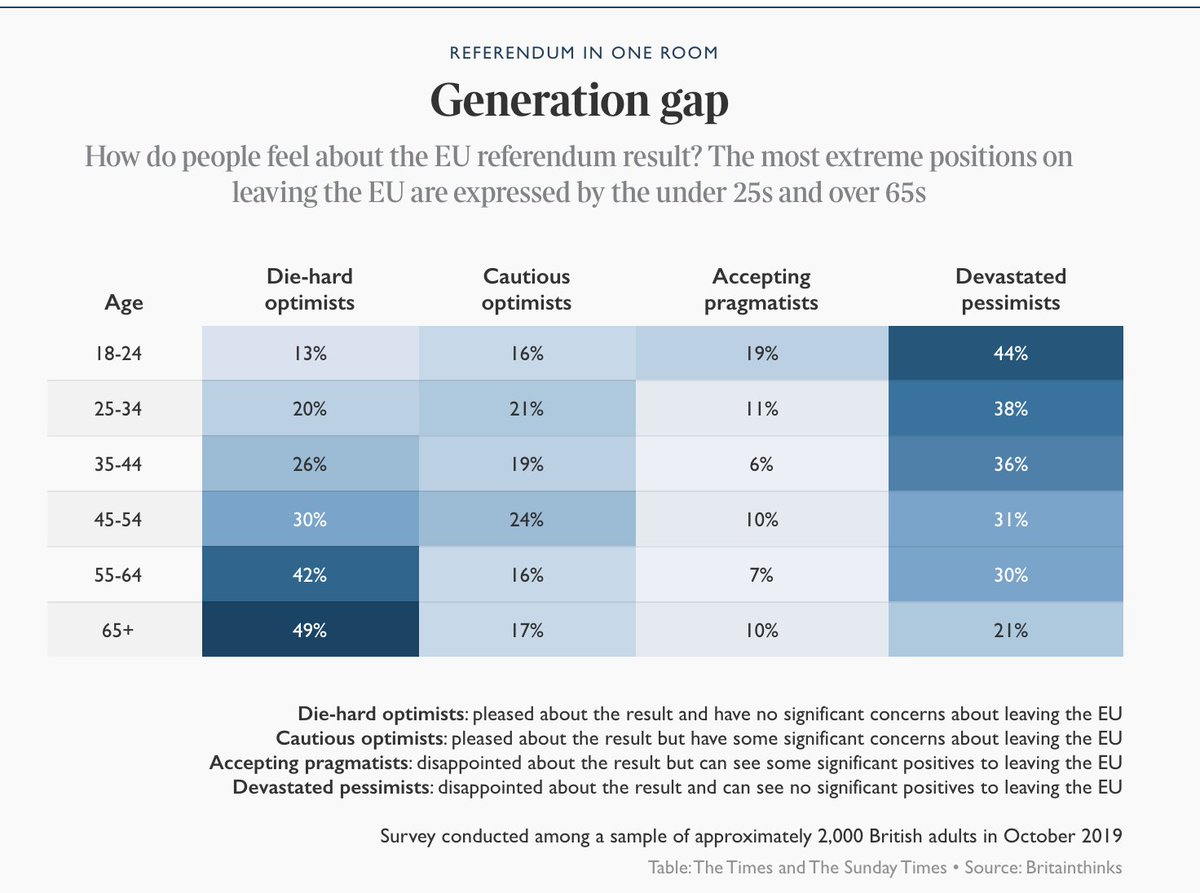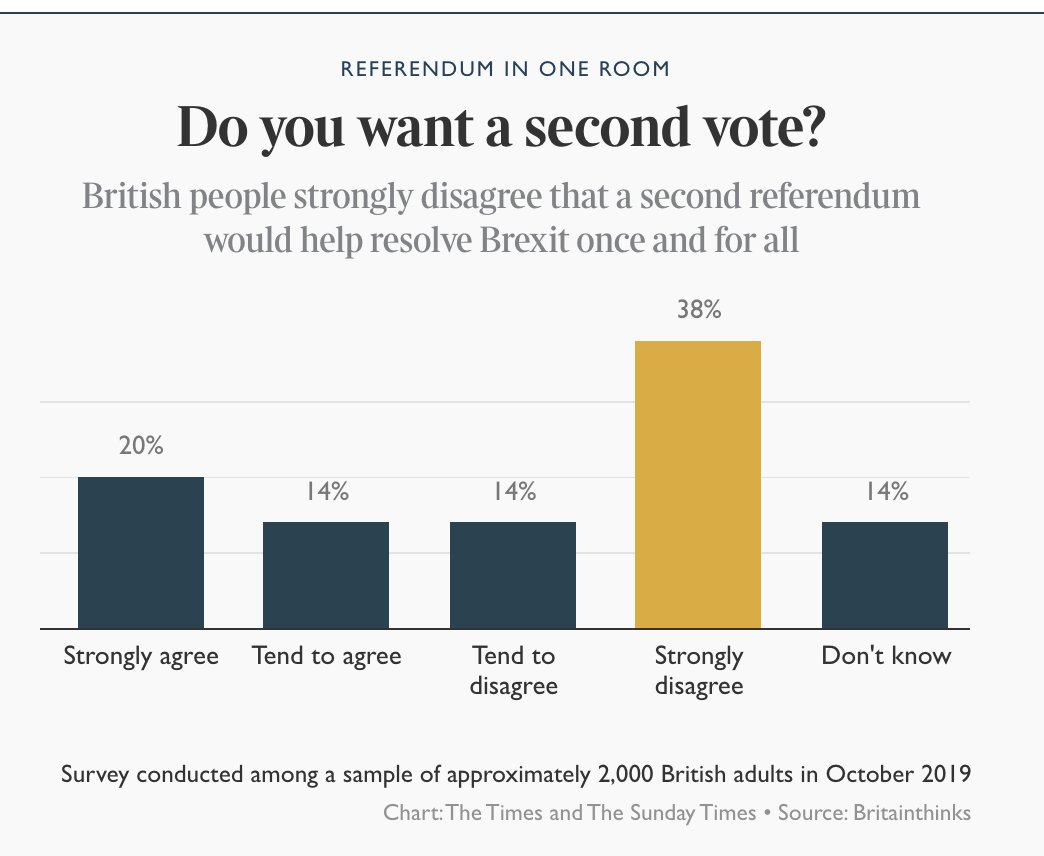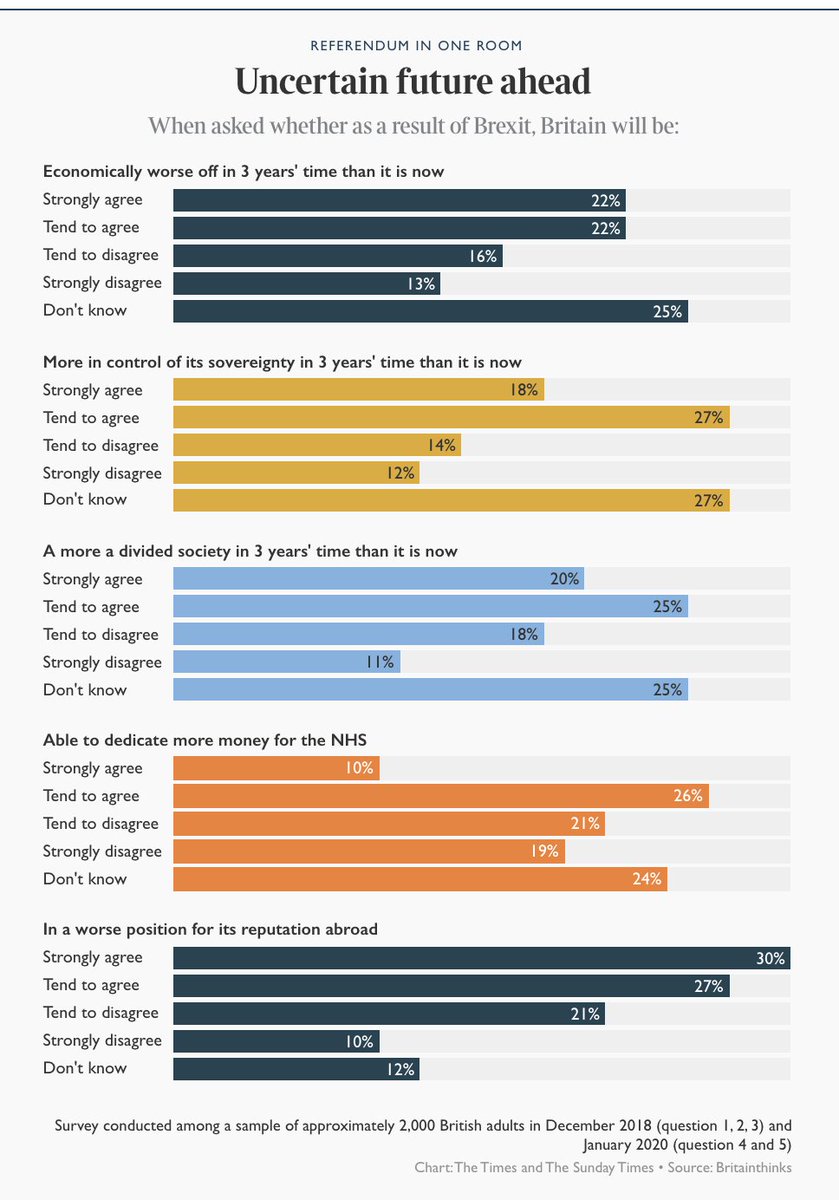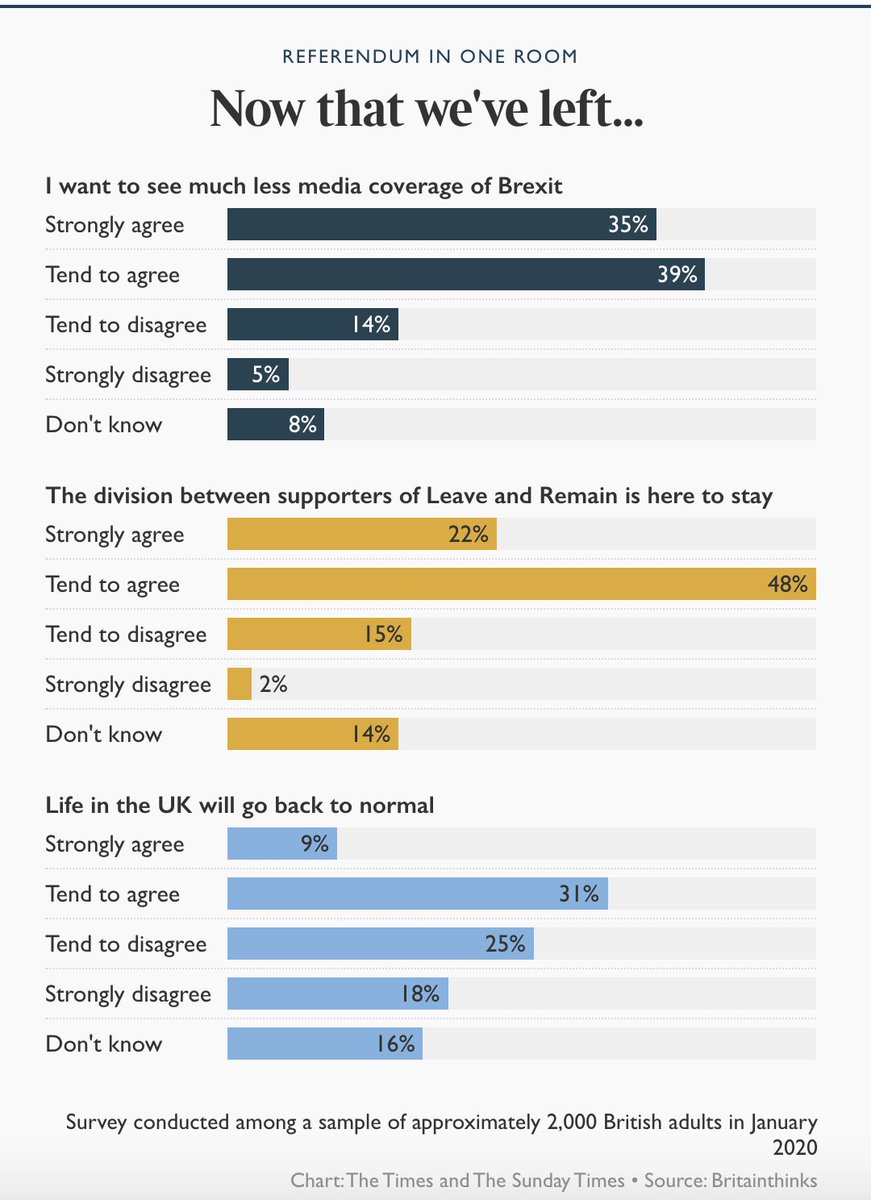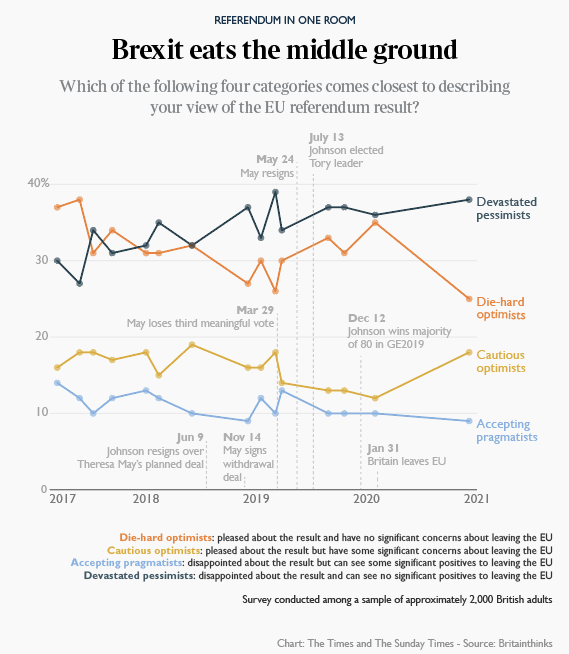Divided we stand: the new Brexit Britain.
It’s consumed four years and three Prime Ministers. But as a deadline for a deal looms, what do those who voted think now? (1) https://www.thetimes.co.uk/edition/news/divided-we-stand-16-lessons-about-the-new-brexit-britain-pvvxbjg5j?utm_medium=Social&utm_source=Twitter#Echobox=1607796523
It’s consumed four years and three Prime Ministers. But as a deadline for a deal looms, what do those who voted think now? (1) https://www.thetimes.co.uk/edition/news/divided-we-stand-16-lessons-about-the-new-brexit-britain-pvvxbjg5j?utm_medium=Social&utm_source=Twitter#Echobox=1607796523
The generation gap 
Those aged 18-24 are the most pessimistic about leaving, with 44% being both disappointed in the result and seeing no significant positives to leaving. Meanwhile, those over 65 are the most optimistic, with 49% seeing a positive future for Brexit Britain.

Those aged 18-24 are the most pessimistic about leaving, with 44% being both disappointed in the result and seeing no significant positives to leaving. Meanwhile, those over 65 are the most optimistic, with 49% seeing a positive future for Brexit Britain.
The death of a second vote 
Despite a long series of campaigns, the desire for a second referendum appears to have died a death: 38% now strongly disagree with the idea of holding one to resolve the issue.

Despite a long series of campaigns, the desire for a second referendum appears to have died a death: 38% now strongly disagree with the idea of holding one to resolve the issue.
An uncertain future 
Most respondents were less than optimistic about the future of the country, with a majority saying that the country’s reputation would be damaged internationally, that society would be more divided and the economy worse off in three years' time.

Most respondents were less than optimistic about the future of the country, with a majority saying that the country’s reputation would be damaged internationally, that society would be more divided and the economy worse off in three years' time.
Brexit fatigue 
Across the board, respondents said they wanted to hear less about Brexit, with 74% saying they hoped to see less media coverage of it.
Though 70% also added that they felt the social and political divisions between leavers and remainders were likely to stay.

Across the board, respondents said they wanted to hear less about Brexit, with 74% saying they hoped to see less media coverage of it.
Though 70% also added that they felt the social and political divisions between leavers and remainders were likely to stay.
A glass-half-empty Brexit 
A plurality of respondents classified themselves as ‘devastated pessimists’ about Brexit; both disappointed by the result and negative on the country’s future. This number has grown from 30% in 2017 to nearly 40% in 2020.

A plurality of respondents classified themselves as ‘devastated pessimists’ about Brexit; both disappointed by the result and negative on the country’s future. This number has grown from 30% in 2017 to nearly 40% in 2020.
Read more about the Times' research on Brexit here: https://www.thetimes.co.uk/edition/news/divided-we-stand-16-lessons-about-the-new-brexit-britain-pvvxbjg5j

 Read on Twitter
Read on Twitter